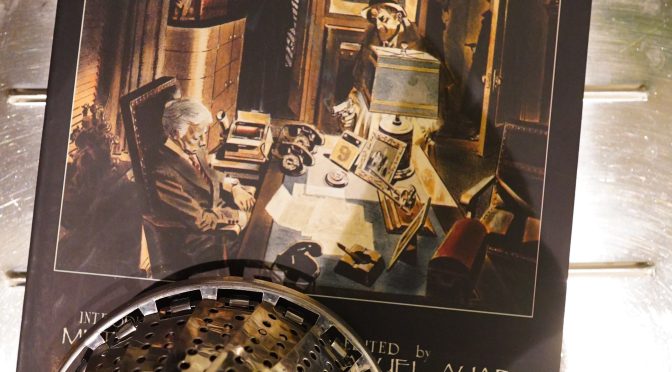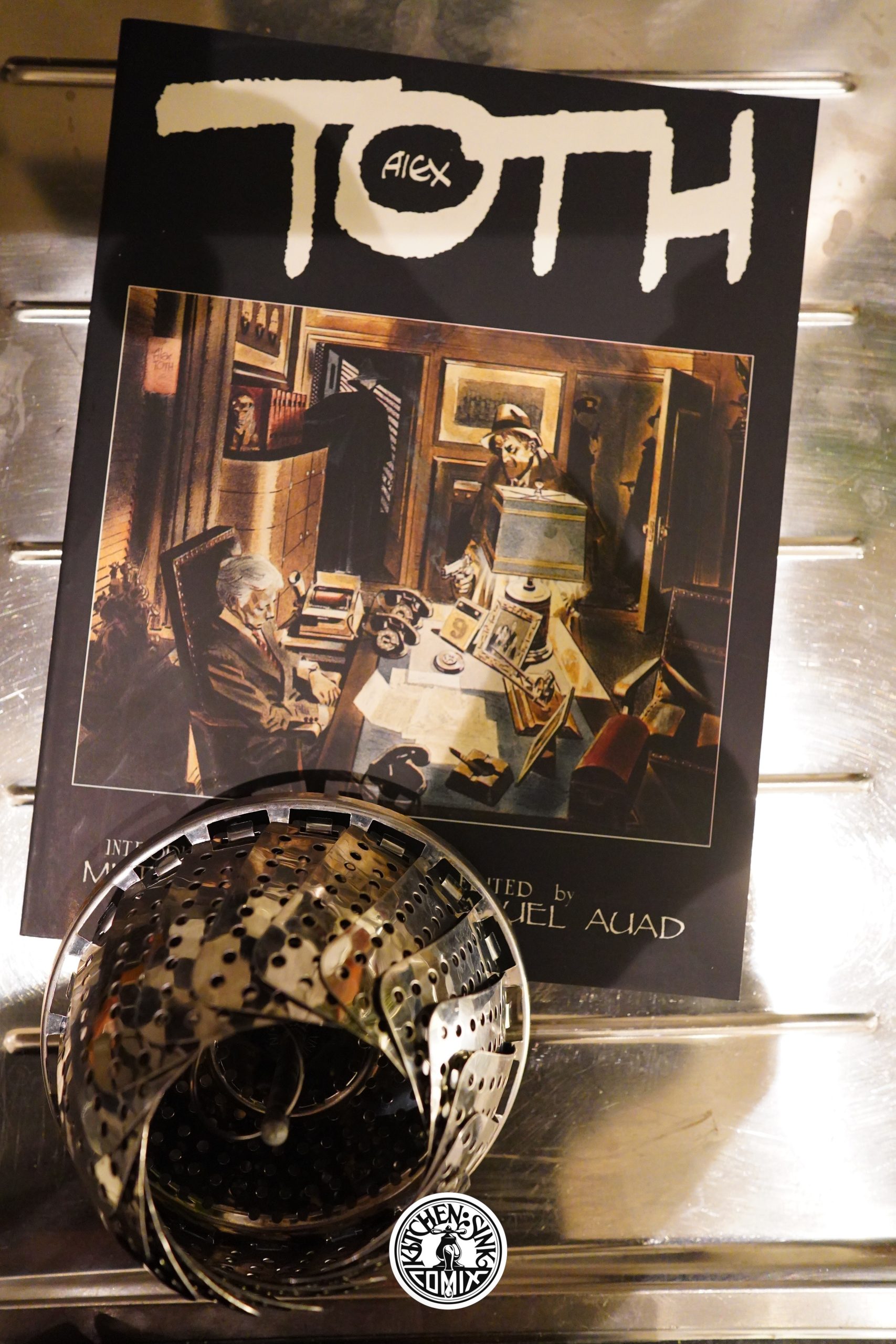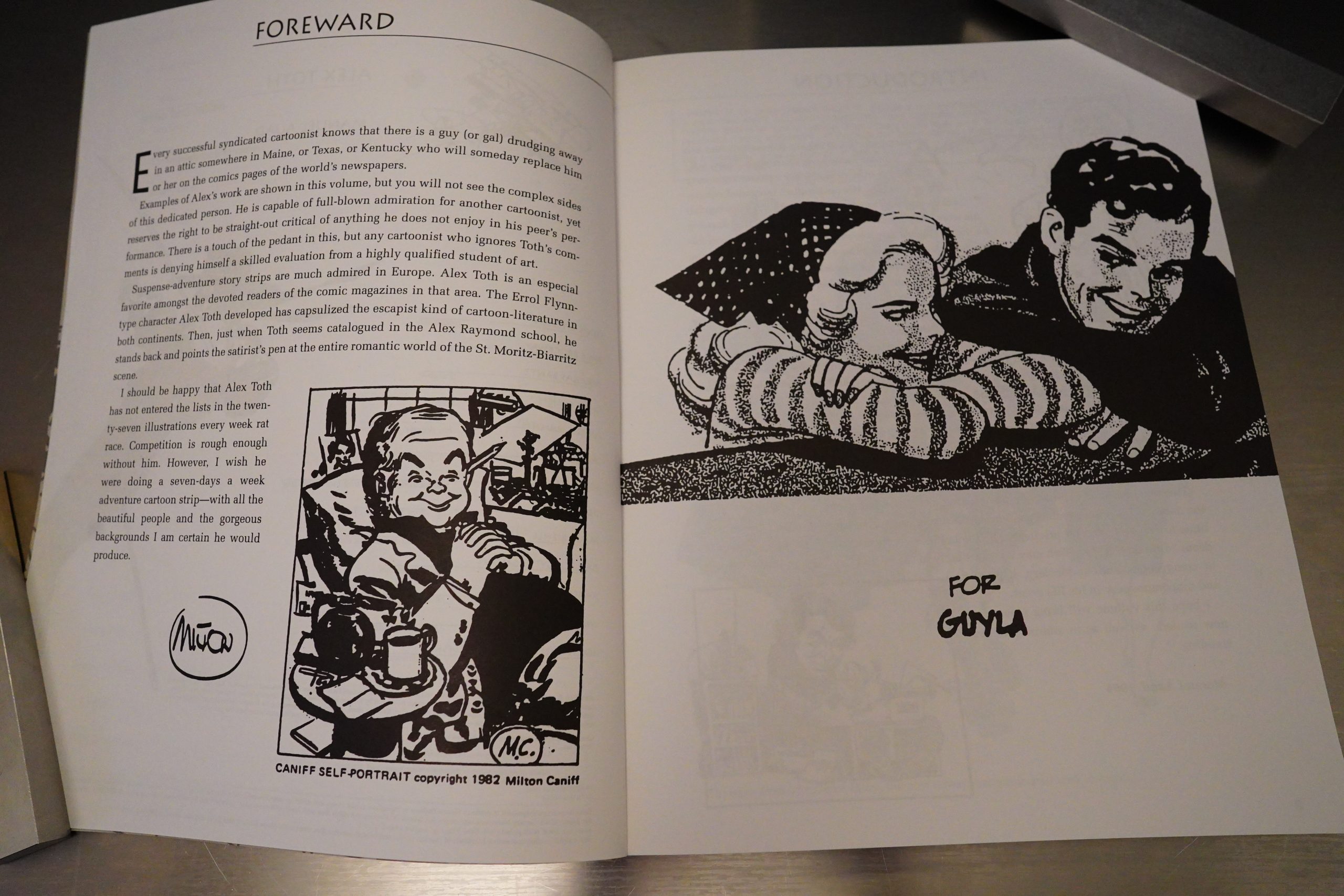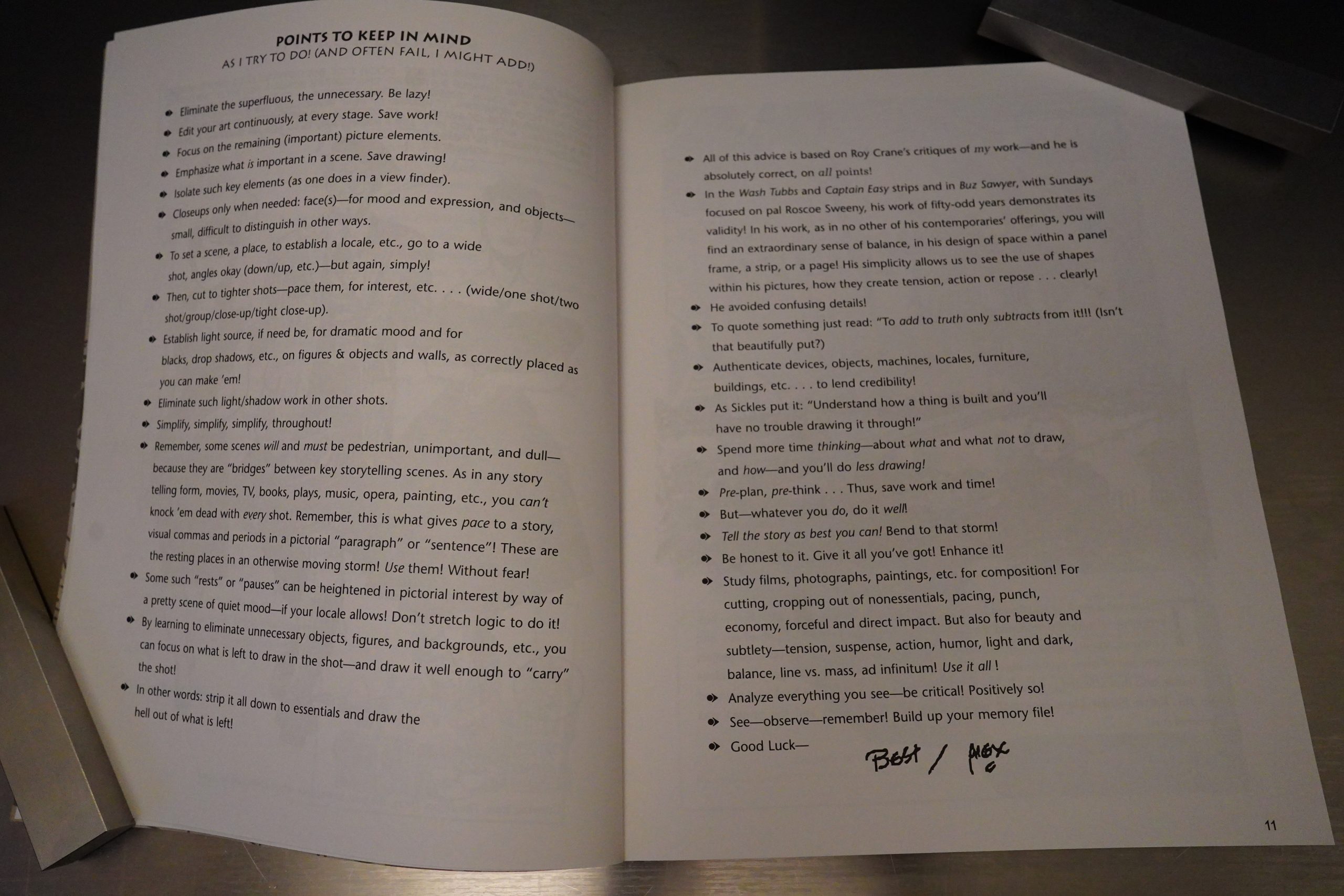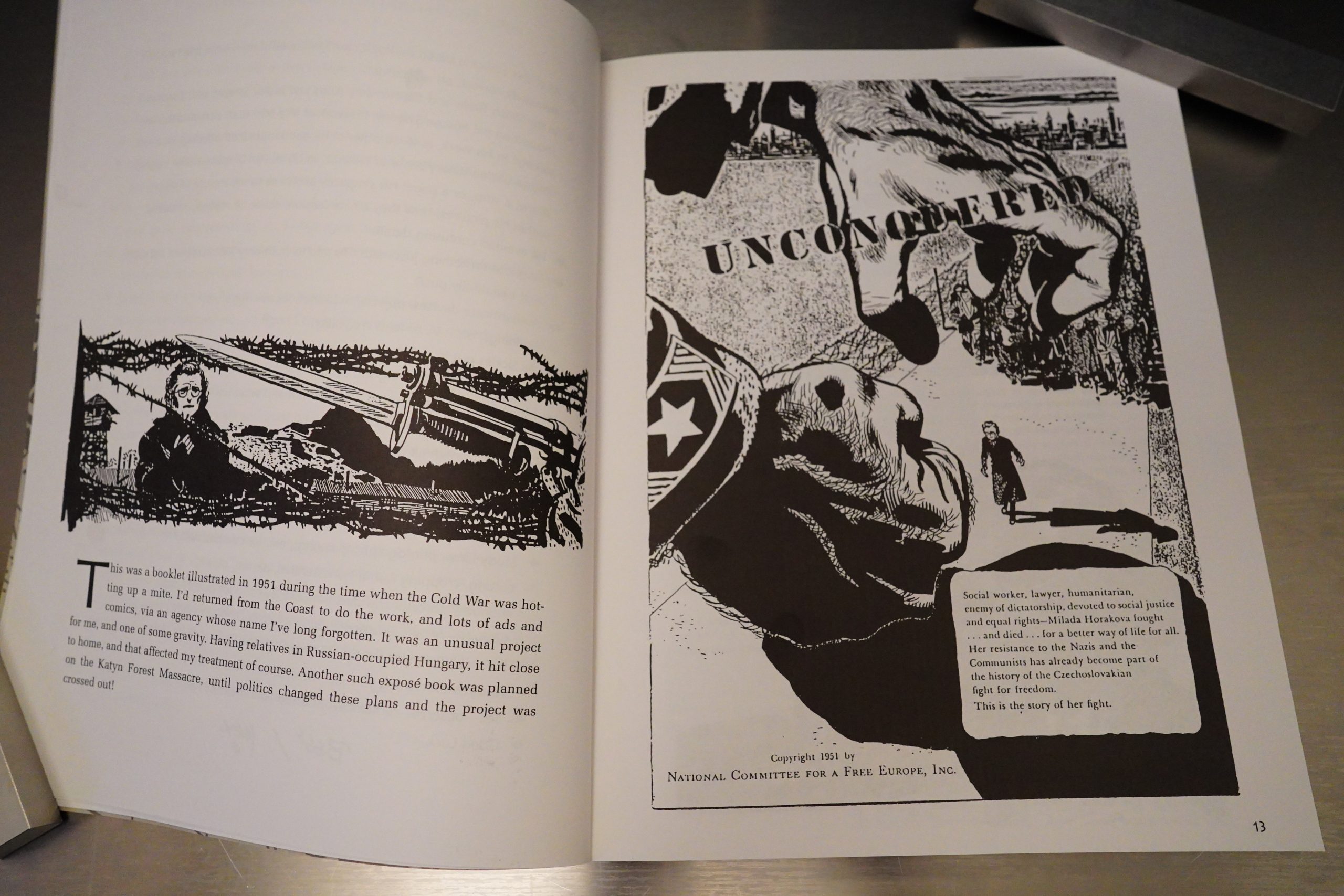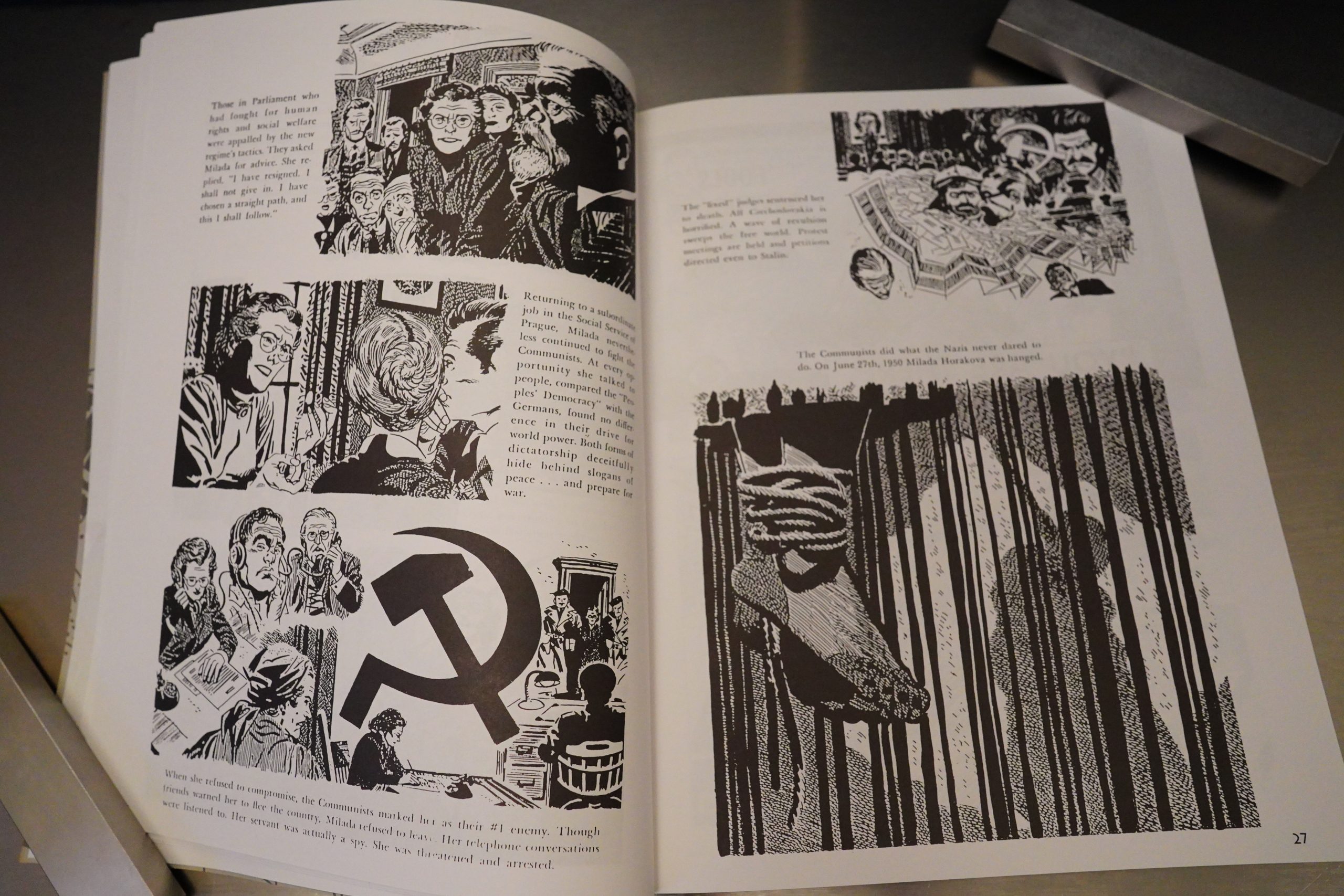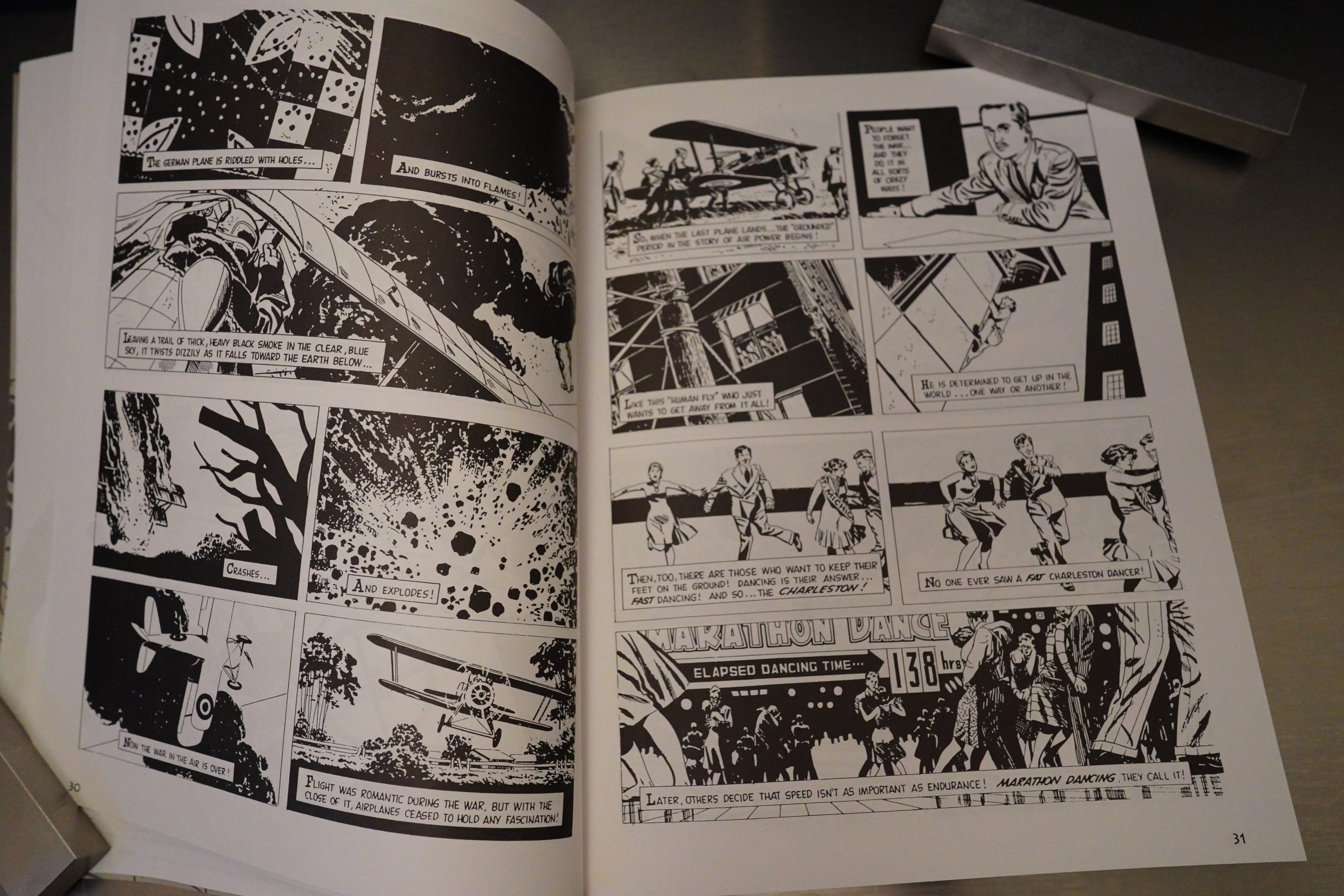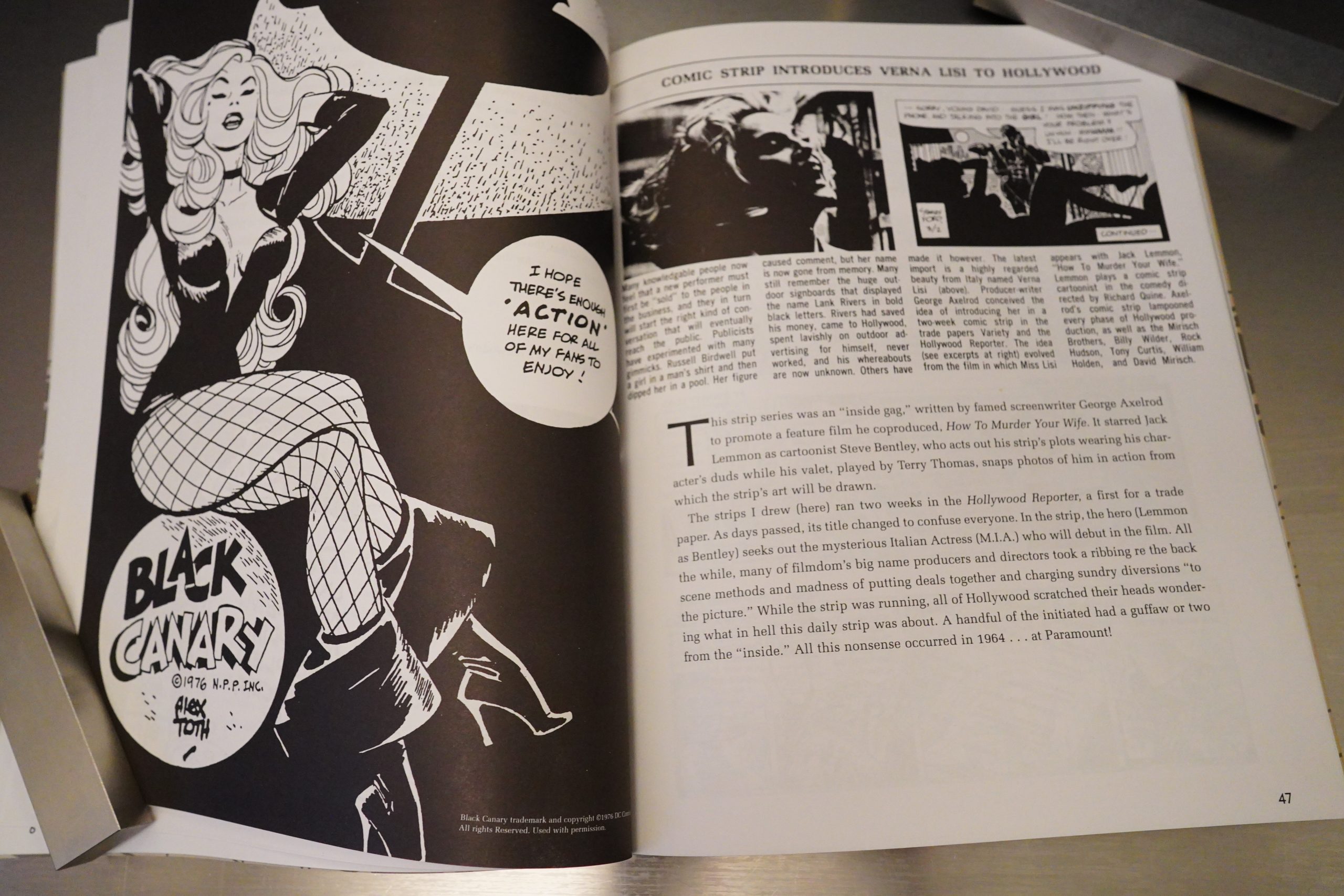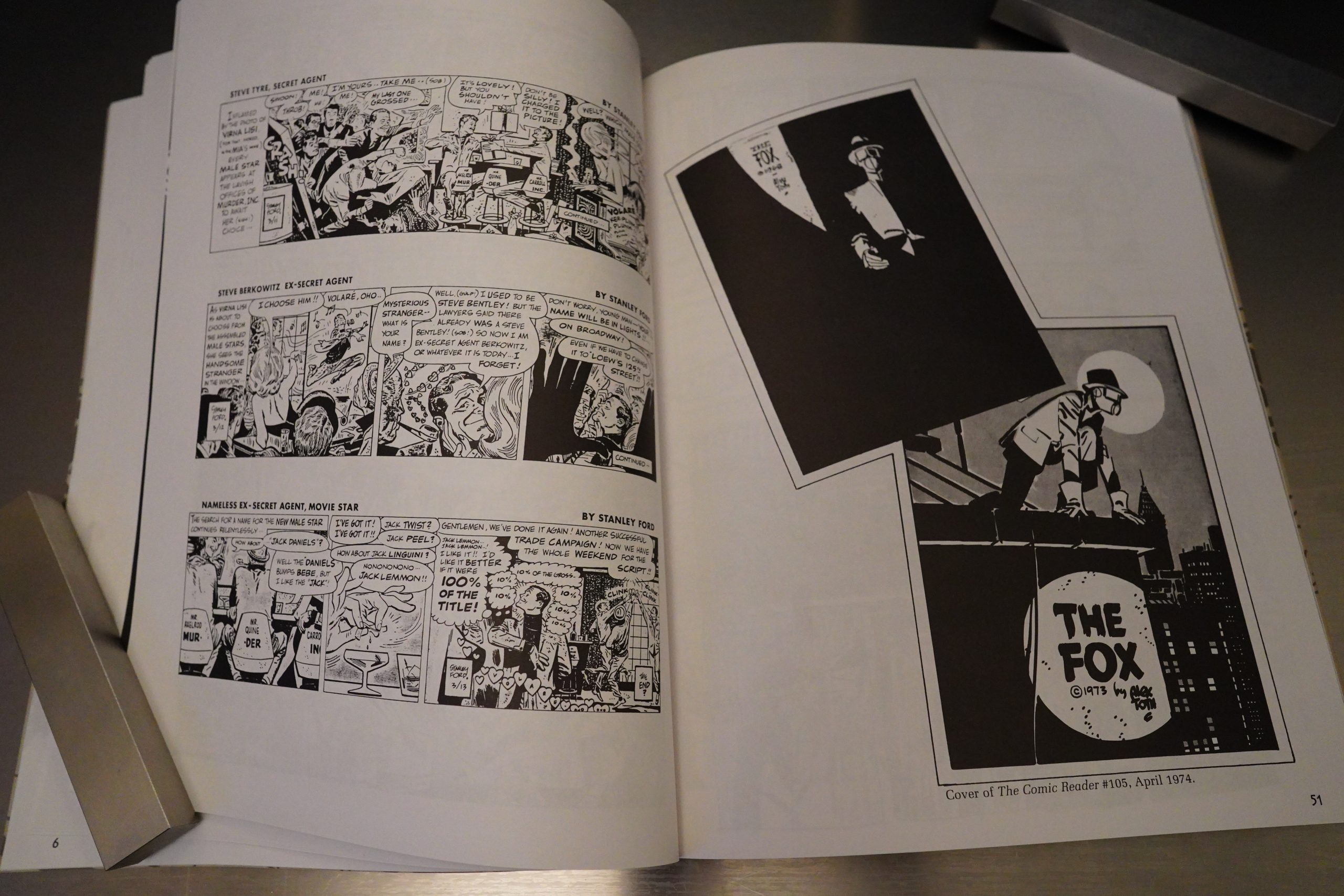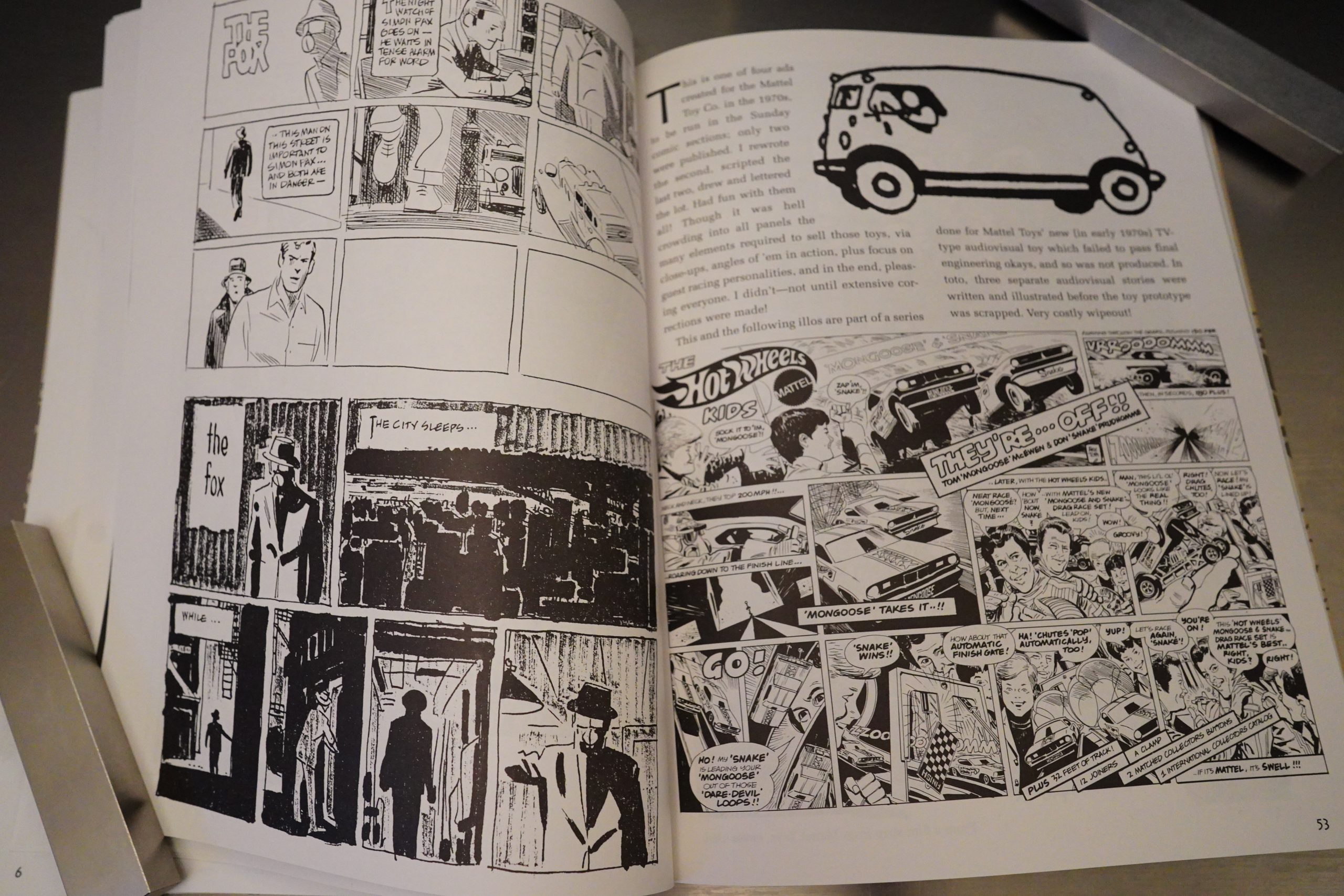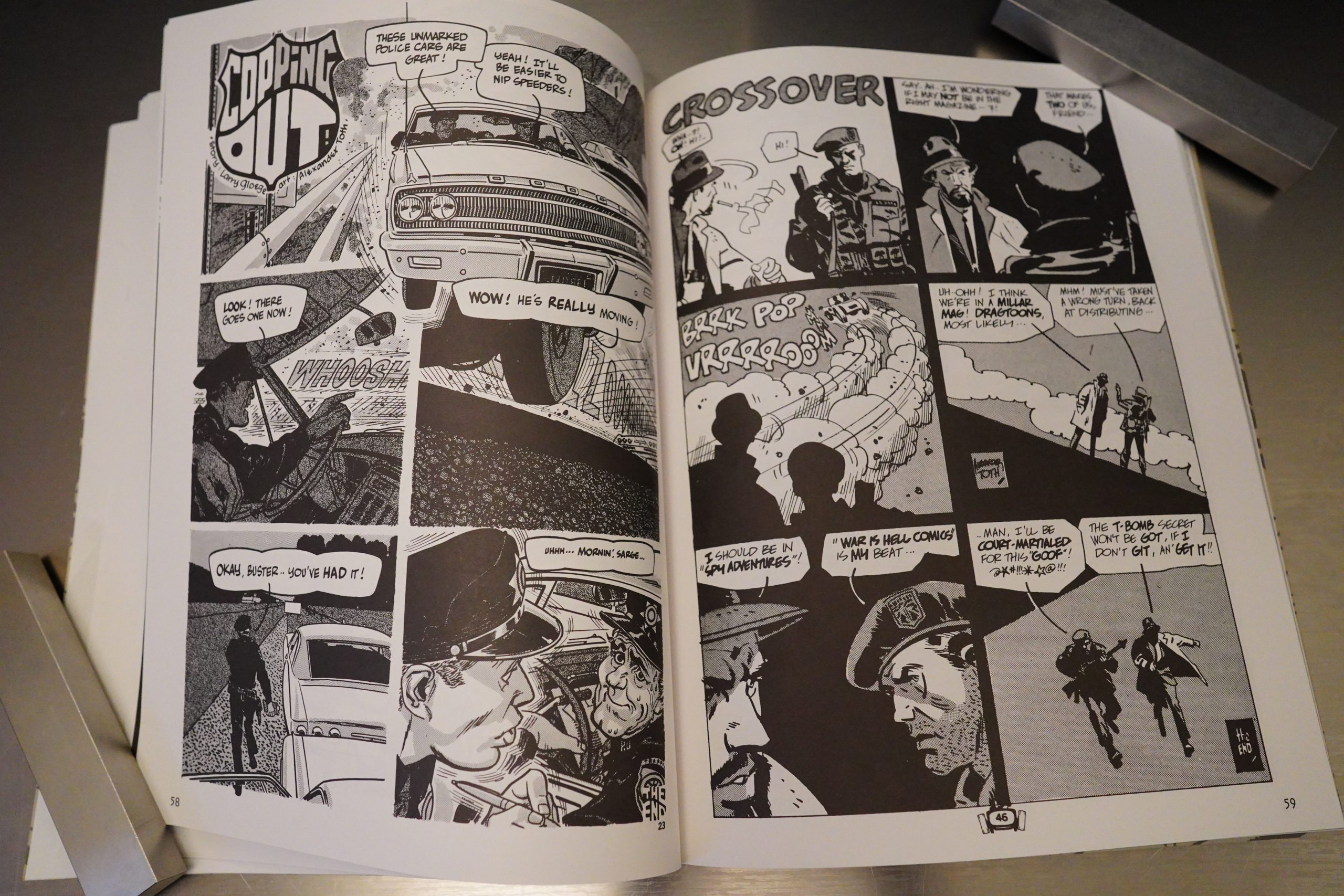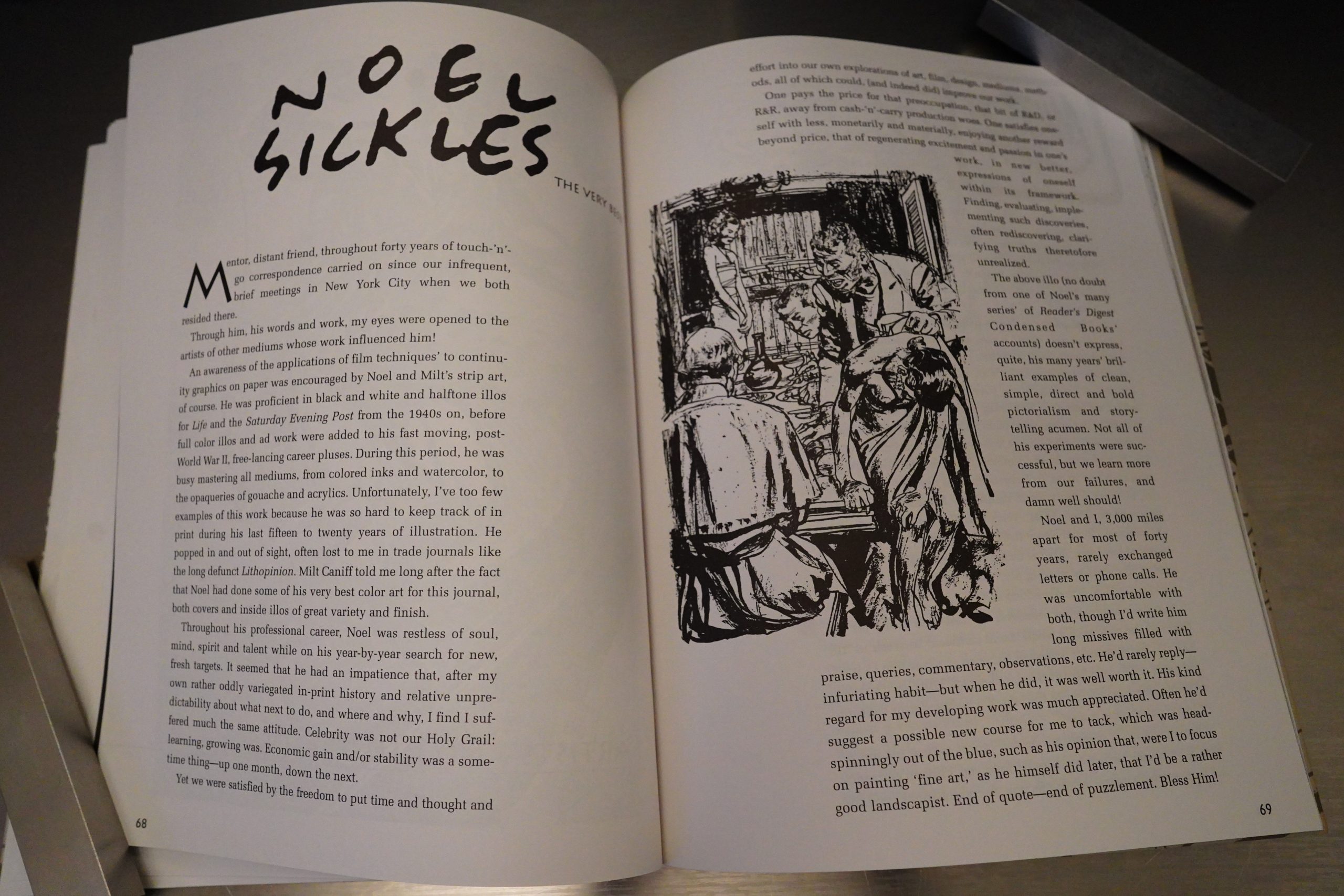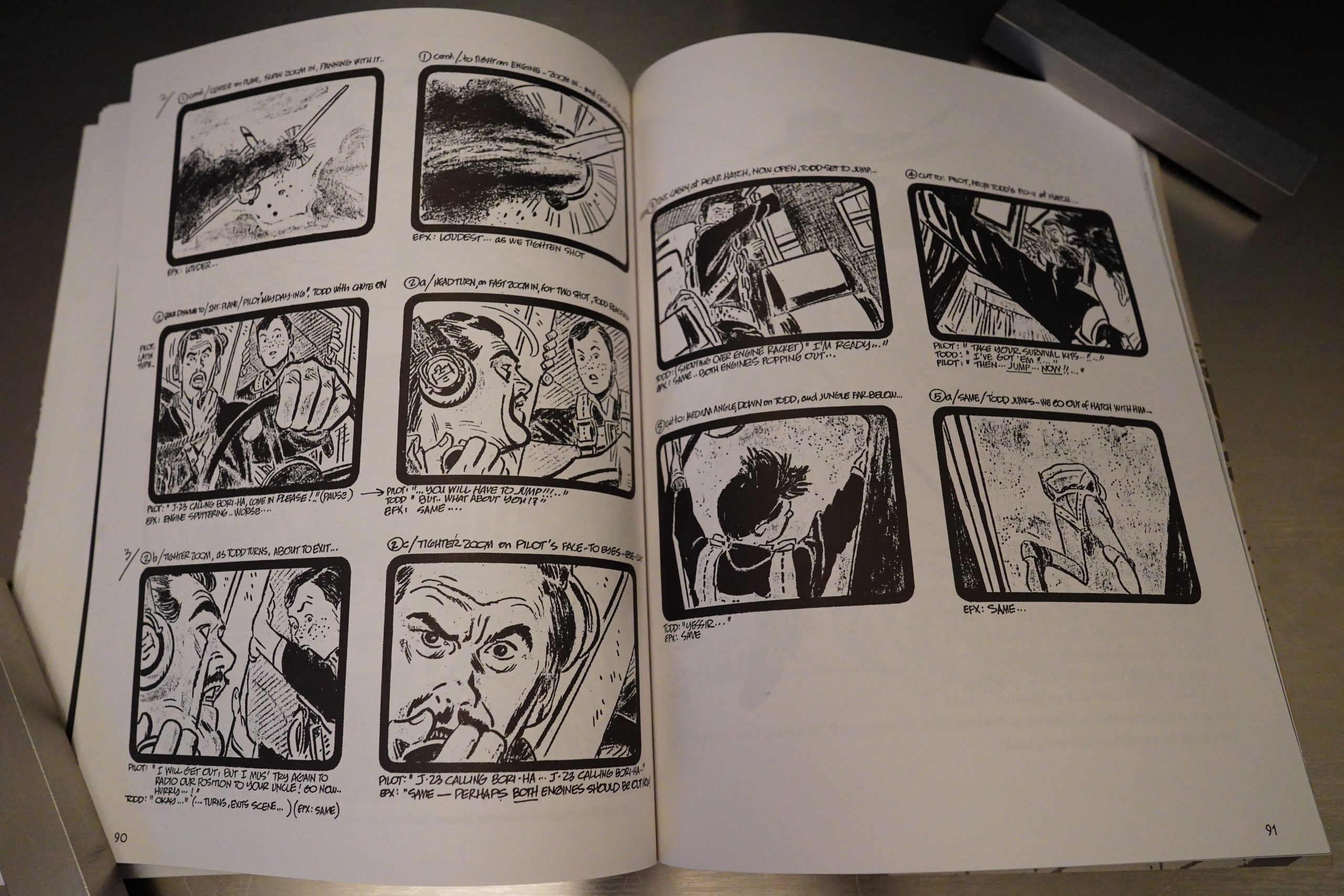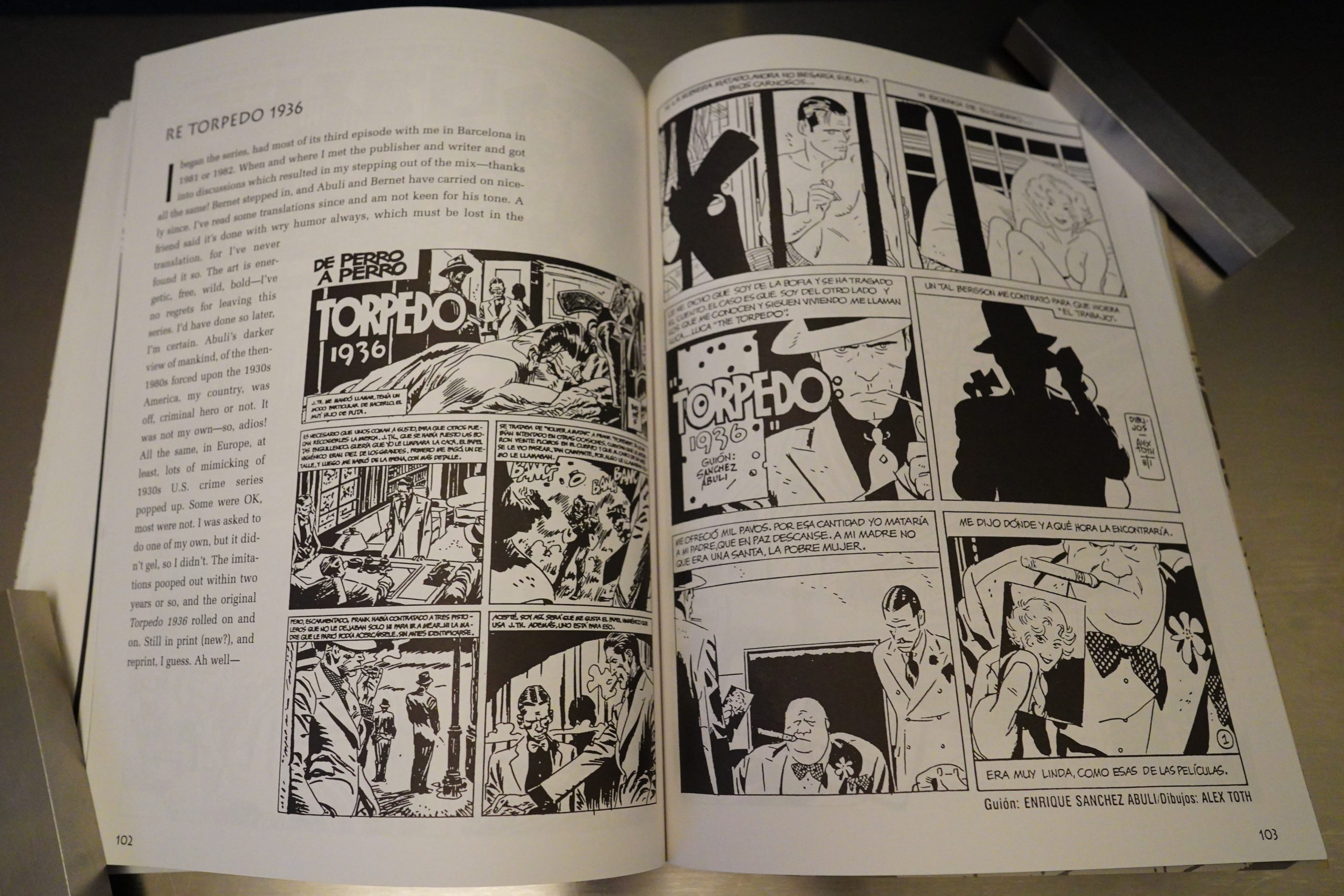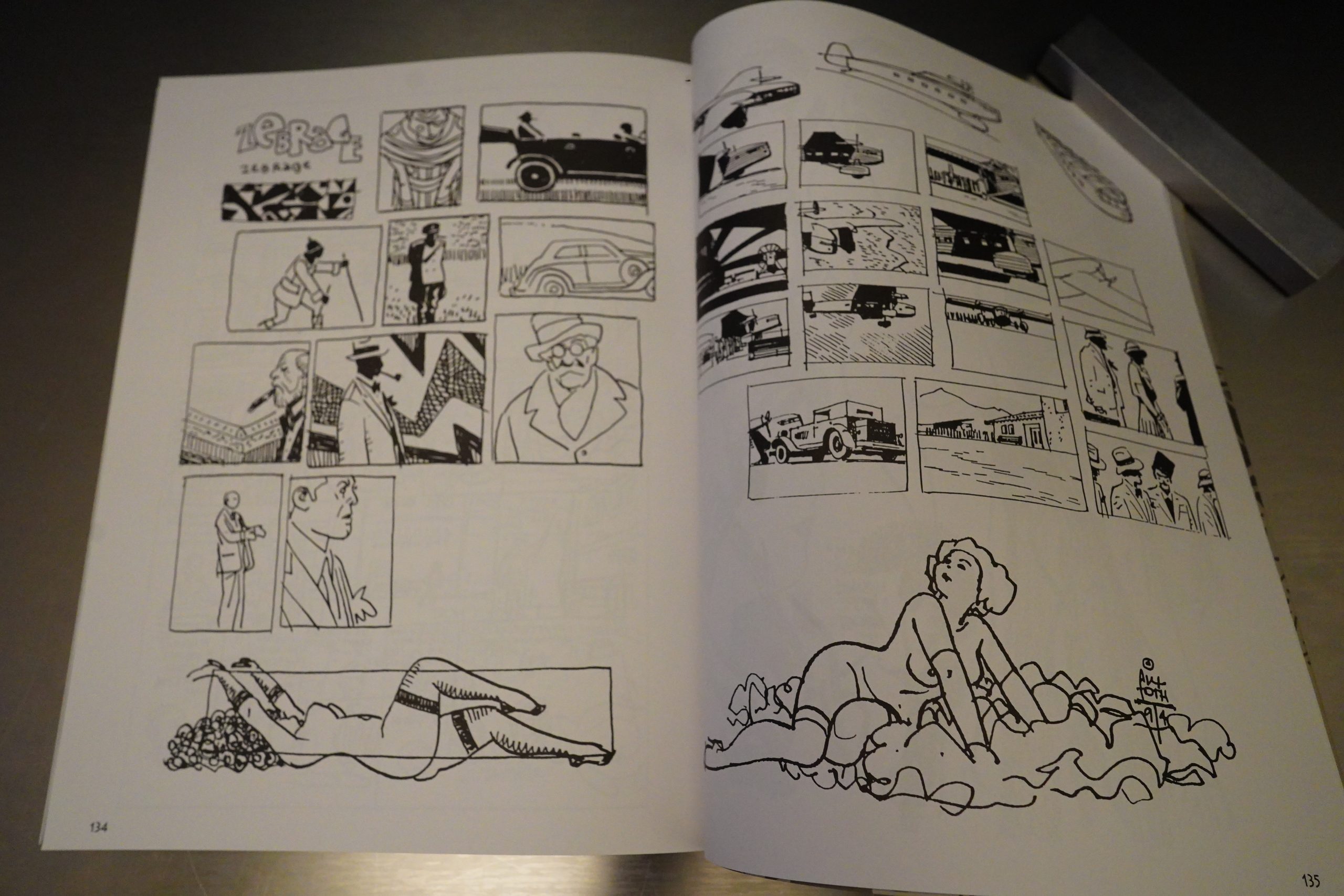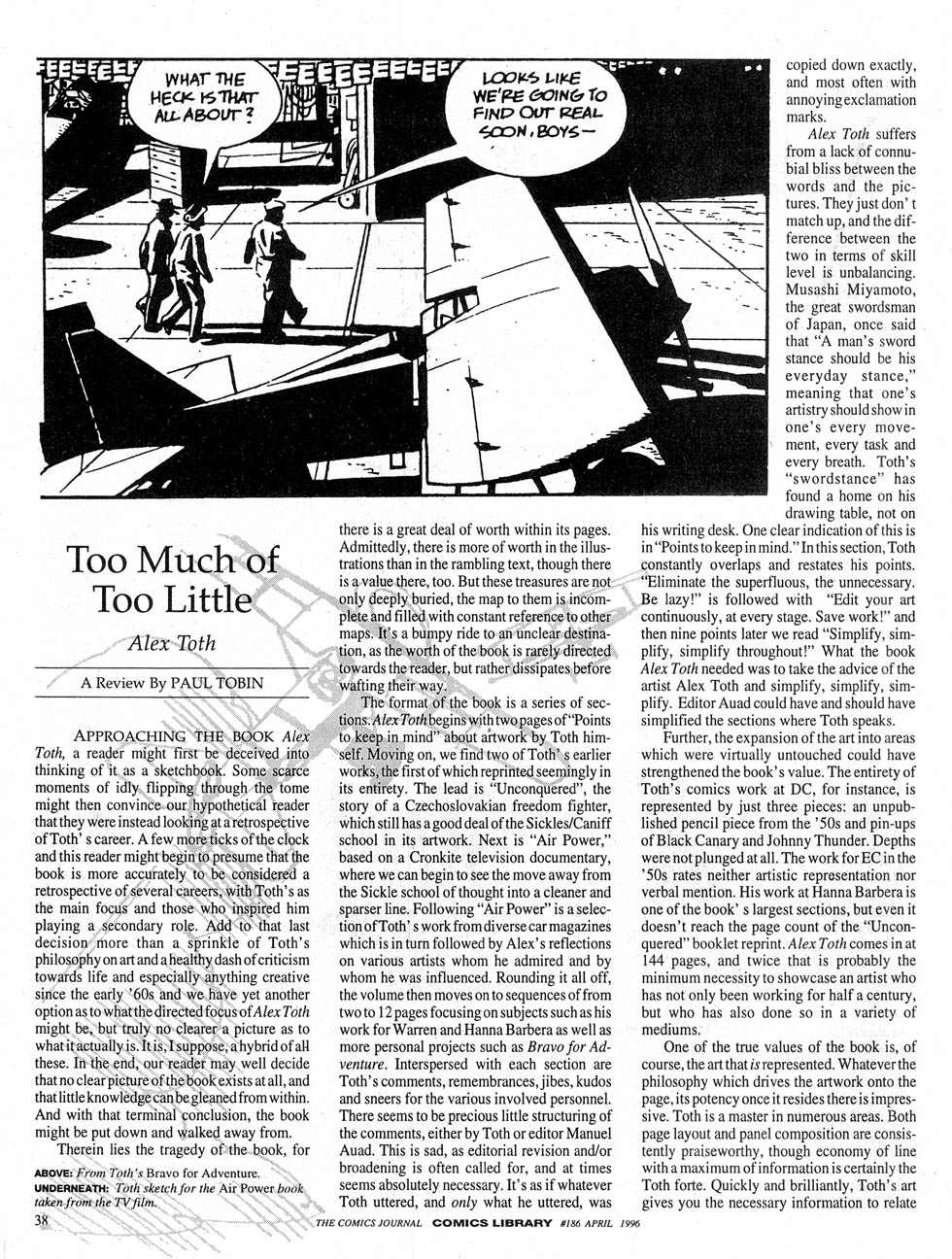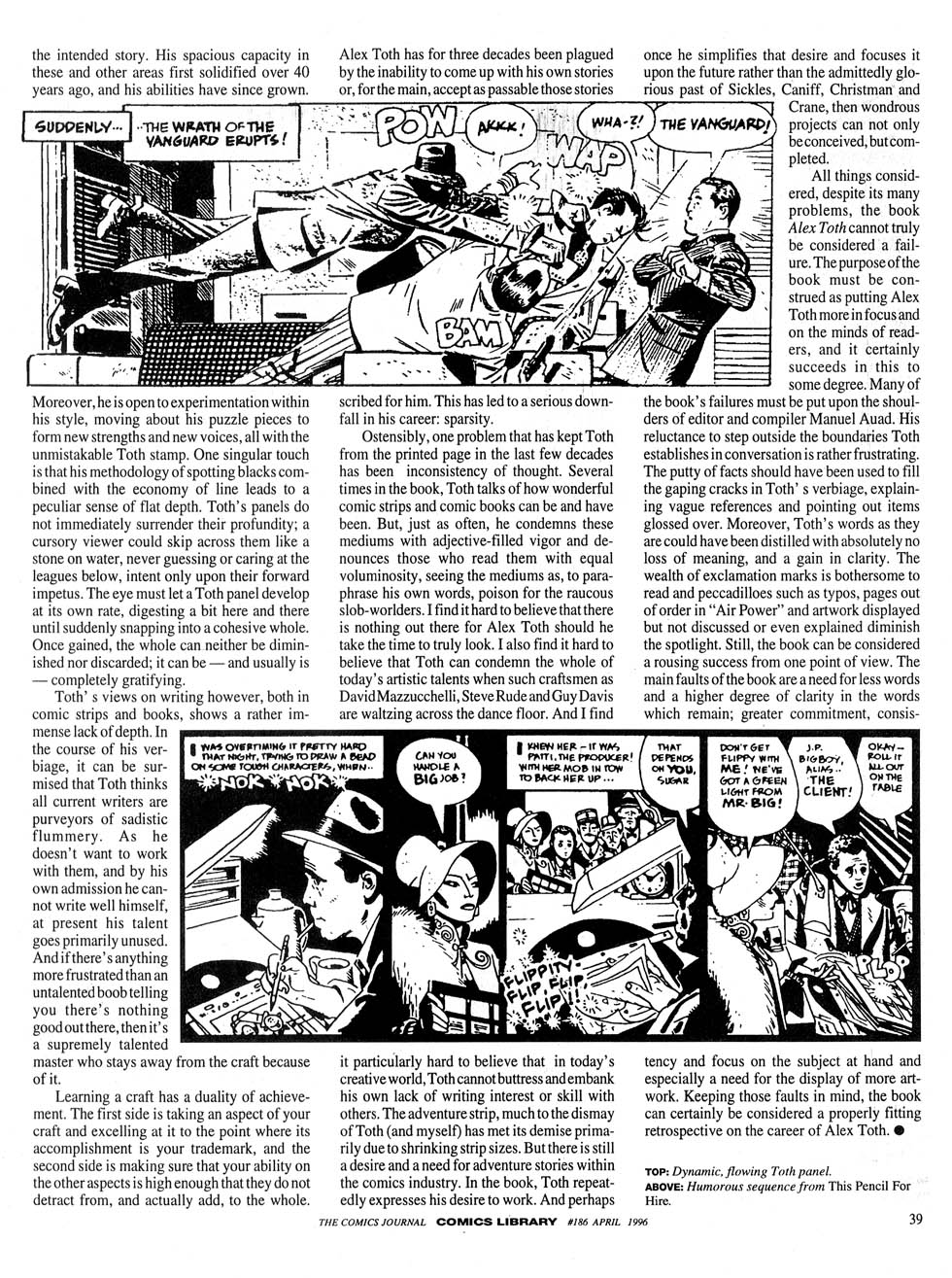Alex Toth (1995) by Alex Toth
I’m sorry if the tone of this blog series has gotten a bit… chilly. It’s just that I didn’t quite realise before I started this just how many things Kitchen Sink had published that I didn’t really have much interest in. It’s not that the things Kitchen published were necessarily bad — it’s just that I find it hard to even summon even a cursory interest in writing about some of these books, so I may come off more like Grumpy Old Man Shouts At Decades-Old Comics than I intended.
Like — what is this book, anyway? It doesn’t really say so explicitly anywhere what the concept behind the book is.
We start with a bunch of introductions that don’t really clarify anything…
… but reading the book, it’s a kinda sorta overview of Toth’s career. But in a very vague way. We’re presented with a few odds and bobs that Toth has illustrated, and a couple of them are reproduced in full…
… like this badly reproduced CIA-financed pamphlet. (Toth doesn’t say how he came to work for the CIA, because… er… well, perhaps he didn’t even know that it’s a CIA publication?)
Similarly, we get other random illustration jobs he’s done.
And some of them are very random ideed, and the introductions are very helpful.
But as with virtually everything Toth has done, the artwork is good, but the stories are either hokey or barely there at all.
Toth is a very influential illustrator, and amazingly talented, but he has an unerring sense that draws him exclusively to illustrate pap. I’m not sure he’s even actually done something that’s actually a memorable read? If he has, I’ve forgotten.
(See, that’s like a joke, in that it’s structured as a joke, but not actually funny.)
Much like Toth’s own gag strips.
And then we get a long section of illustrators Toth thinks are swell.
And storyboards.
Oh, right, he illustrated the first couple of Torpedo 1936 episodes — those are actually good. And he left that, of course, and doesn’t think much of it, because he found it repugnant (I’m reading between the lines here).
And even here, the reproduction is horrible! Surely they had access to better material than this?
And then there’s some sketchbook stuff.
So what is this book? It’s like visiting Toth and having a peek through his archives, while he’s chatting a bit, I guess? And that’s probably a lot of fun for die-hard Toth fans, but for the rest of us, it’s a bit… er… not very interesting, really.
Toth is interviewed by Gary Groth in The Comics Journal #277, page 21:
I don’t think I realized to what extent
Toth refused to countenance opinions with
which he differed. I happily sparred with Gil
Kane and Burne Hogarth, two artists Toth
despised, incidentally, who were every bit as
principled and opinionated as Toth, but who
never took such arguments personally. Toth
did.
Following is my last conversation with
Alex. He agreed to an interview and I called
him up with the hope that we could get
started. I expected (or hoped) that our initial
warm-up conversation would segue into the
interview proper, but it was, sadly, derailed
before we got there. He said he was not in a
very civilized mood, and I suppose he was
right. Here’s a glimpse Of the man at his fierc-
est, most unmediated, and combative — typ-
ical of many of our conversations and of his
take-no-prisoners conversational style.[…]
GARY GROTH, There was a nice book that came
out about you recently.
ALEX Yeah, full of typos and all kinds of
fuck-up s.
GROTH, Jokingl:You should have reviewed it
for us.
TOTH, Review my own bloody, so-called
book?
GROTE-I, [Jokingl:Yeah, you could have torn it
to pieces.
TOTH, Well, first of all, it really wasn’t my
book. It was Manuel Auad’s book, and those
bastards at Kitchen Sink did not send him a
proofed copy. That’s why those damn typos
and glitches and lousy color separation on
the cover existed. And then they screwed ev-
erything up even more by copyrighting the
damn thing in my name instead of [Manuel
Auad’sl, so there’s a lot to be desired in this
publishing thing, and I don’t think I want to
dance that tune again.
GROTHt Well, I haven’t actually sat down and
read it. just looked through it, but it looked
handsome, We actually have a review in the next
issue Of the magazine. I’m sure you’ll love it.
TOTH, Yeah, R. C. Harvey’s. Yeah, he was very
gentle. He didn’t note all of the typos and
misspelled well-known names.
GROTTI, Well, I cut all that Out Of his review.
TOTH, Oh, you did?
GR(YI’H, No, I’m just kidding.
TOTHt Well, he could have cited it because
I think Kitchen Sink’s editor needs a good
bump on the head for what he did. He used
his own editorial judgement, which was
wrong in every case.
GROTH: You think it was just sloppiness?
TOTH, Well, they complain about not [hav-
ingl enough budget for more proofreaders.
Well, hell, they had two free, absolutely
free proofreaders right here. Manuel, he
would’ve done it and then he would’ve sent
it down to me to double-check again. And I
would have sent it back and it wouldn’t have
cost them a penny. And it would’ve been cor-
rect and I would’ve caught omissions that
were glaring. There was no reason for what
they did; they fucked up some of the pages,
the arrangements of them, and omitted stuff,
Manuel had submitted like 180 pages, and
they cut it down to 144 and I think most of
those pages were the doodle pages, which
everyone who’s called me or written me
has said, “Gee, I wish there had been more
doodle pages.” Well there were. There were.
And some asshole editor decides on his own
hook, whether by pressure of other work-
loads, Which I heard was the big complaint
— “Well, gee, we got so many books to do
here, you know, we don’t have enough peo-
ple todo them.” Well, Christ. That’s no alibi.
Alibis just don ‘twork: it’s wha€s in print that
counts. I don’t want to hear anybody’s sob
story. It’s what’s in print that counts: that’s
what talks and walks.
GROTH, Well, that’s damned unfortunate. I
forget W’hat the book costs but it seems like they
could have made it a larger book andjust.
TOTH, Thirteen [dollars).
GROTH, They could have made it a larger book
and charged $15.
TOTH, Well, firstofall, ithad very little, ifany,
promotion. I was getting Manuel to [push
them] way back in March oflastyear because
they were sitting on it for a year, to get them
to get it ready for the big San Diego con. If
you’re gonna debut a book, debut it there.
And if the thing has got any value at all, word
of mouth will make it sell and they’ll have a
pretty good temp reading as to whetherwe’ve
got a dog or if we’ve got something that will
fly. So, no, no, they knew better. They knew
better. so they fucked around With it until
the end Of the year and that’s when it Came
out. And it was just a total botch.
GROTH, Did they cut it down with the editor’s
permission? Manuel’s or
TOTH, I think he caved on some of the stuff,
but I think they did some more. The most ir-
ritating — first of all, I hand-lettered all my
stuff and they converted all that to type.
GROTH, They did?
TOTH, Yeah. And they convinced Manuel that
was the best way to go because my lettering
was uneven, and I’ll confess to that Yes it
was. But it was there and it was in my hand
and they couldn’t fuck with it if they would
just reprint it as it was done. Another thing
that really pissed me off is that the letter that
Milt Caniff wrote to Manuel, for some god-
damn reason, don’t ask me why, I can’t figure
it out, and I haven’t got a copy of the letter
handy now. it’s buried under tons of crap
here. They chopped off the opening and the
closing paragraphs Of that letter, for no god-
damn good reason. They have no right to do
that That was a communication written ex-
pressly for the proposed book that Manuel
had in mind for years, and they didn’t even
know about it
GROTH, They did that without Caniff’s knowl-
edge?
TOTH V/ithouthis permission. I mean, there
it was. It’s gone: the opening and the clos-
ing. And they set that to type too when his
original note with crossovers and etceteras
would have made it much more personal and
genuine because I was getting very strange
phone calls from guys saying, “How come
a dead man has just written a forward for
your book?” And that wasn’t very funny,
and that’s the position that we were put in
because Milt always dated his notes. His jot
notes, you know, his freehand notes and all
of his little typed notes. So the whole thing
sucked, you know. It robbed us of that little
personal touch which would’ve been much
warmer. And the same thing would apply to
whatever I hand-lettered on my own.
GRO-n-it It’s an academic question at this point,
but Why didn’t Manuel Past say, “do it the way
I submitted it”?
TOTH, Well, Manuel was a virgin. He never
did this before. This was his first publishing
venture. It was his idea to gang all this stuff
up Of mine and shoot it into somebody and
see if they’d want to do it And I can’t remem-
ber if he submitted it to Bud Plant or anyone
else before he shot it over to the Sink. I was
blowing in his ear and telling him, “Try this,
try that. Talk to these people,” and he was un-
known, so he was getting a fast shuffle from
everybody. “Who the hell are you?” you
know. And so, here he had the damn dummy
ready to go and then finally it winds up in the
Sink’s hands and they sit on the goddamn
thing for a year or so. It’s not their property.
They have no bloody right to do that Either
you move on it within a fixed amount of time
or forget it “Fuck you. You’re not the Only
publisher in the business.” The Sink was
undergoing its own strange transformation
with all of this crap, the merger, the buyout,
who bought who, I don’t care. With what’s
his name back there — and then moving,
physically, his whole operation to the East
Coast All of that got in the way and whatever
turmoil there was showed up in this book.
So Toth wasn’t happy with the book as printed. To say the least.
The Comics Journal #262, page 106:
Some of his break-ups seem leveraged
by demons whose consequences for the
man in their possession, as well as for
those they crash him against, make one
shudder — if not weep. Dick Giordano,
with whom Toth once sought to work,
heard himself denounced at a convention
as “the man who ruined comics.” When
Jerry De Fuccio, who had grown up with
Toth, was receiving chemotherapy, he
became infatuated with a nurse. Toth,
who had been calling and writing regular-
ly, announced, “You’ve got a family now”
and cut Off contact. Manuel Auad had
edited and published several Of •roth’s
books. Toth’s late wife had a son by a prior
marriage whose wife, like Auad, was
Filipino. On visits she brought pastries, of
which Toth grew fond. After his mother
died, the son stopped coming. Toth, who
missed the pastries, asked Auad for some.
Gradually, Over nine years, he began send-
ing Toth more and more ofwhat he
ed. “Frozen foods, underwear, chicken
thighs, cigarettes, you name it. But if any-
thing was late, there was hell to pay.”
Eventually this hell caused the two to stop
speaking. “Alex can be funny, generous, all
the nice you can think Of,” Awad
says. “Once my Wife fractured a finger,
and the next day two dozen roses arrived
from Alex. But if you get on his wrong
side, he will lay it on you.”
Paul Tobin writes in The Comics Journal #186, page 40:
Tbyrgin lies the tragedy of>the.book, for
Oops, the OCR on this page is totally illegible, so I’ll just include the page:
He’s more critical of the book than I am, and I think the book sucks, so…
This is the one hundred and seventy-fifth post in the Entire Kitchen Sink blog series.
